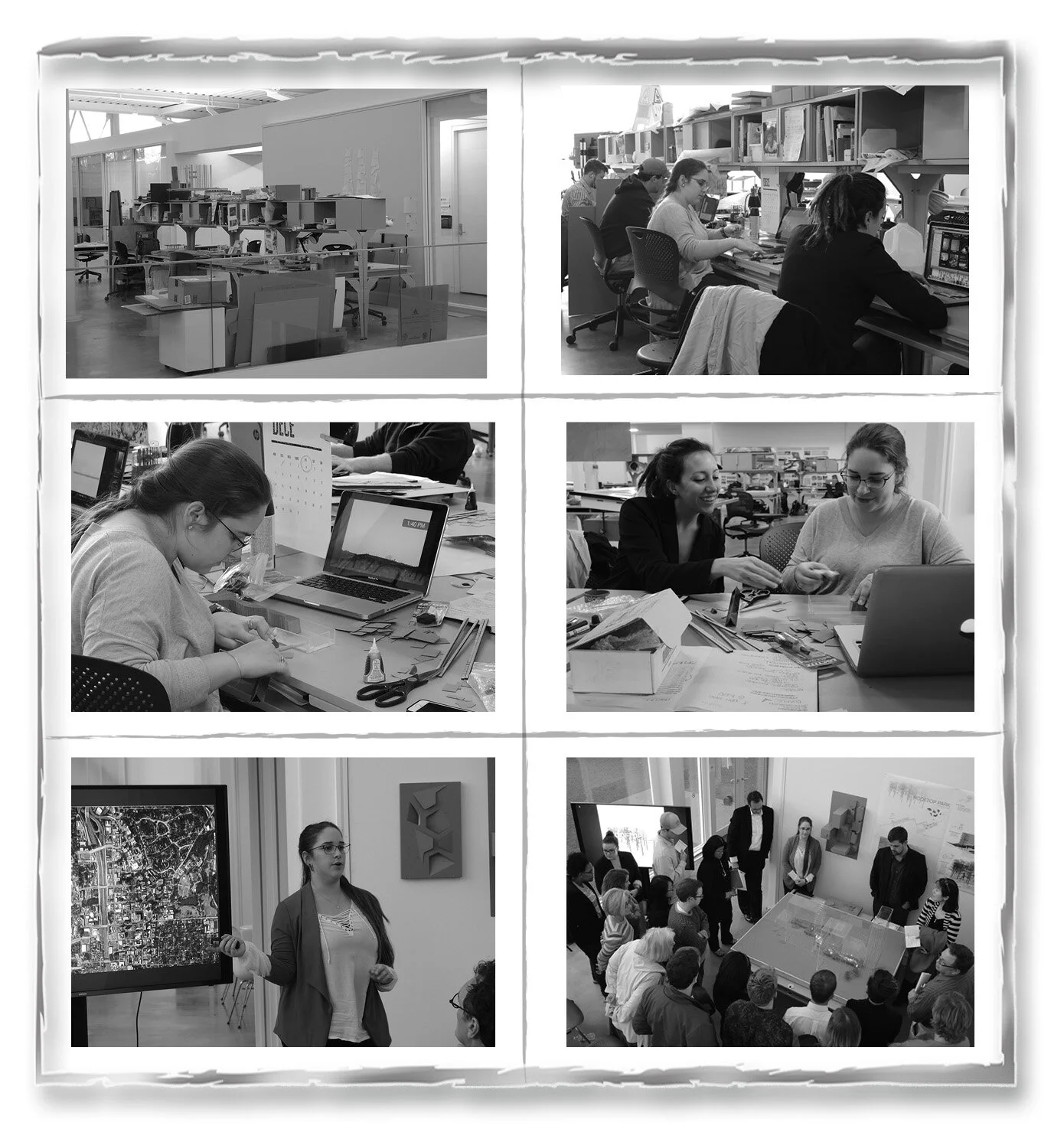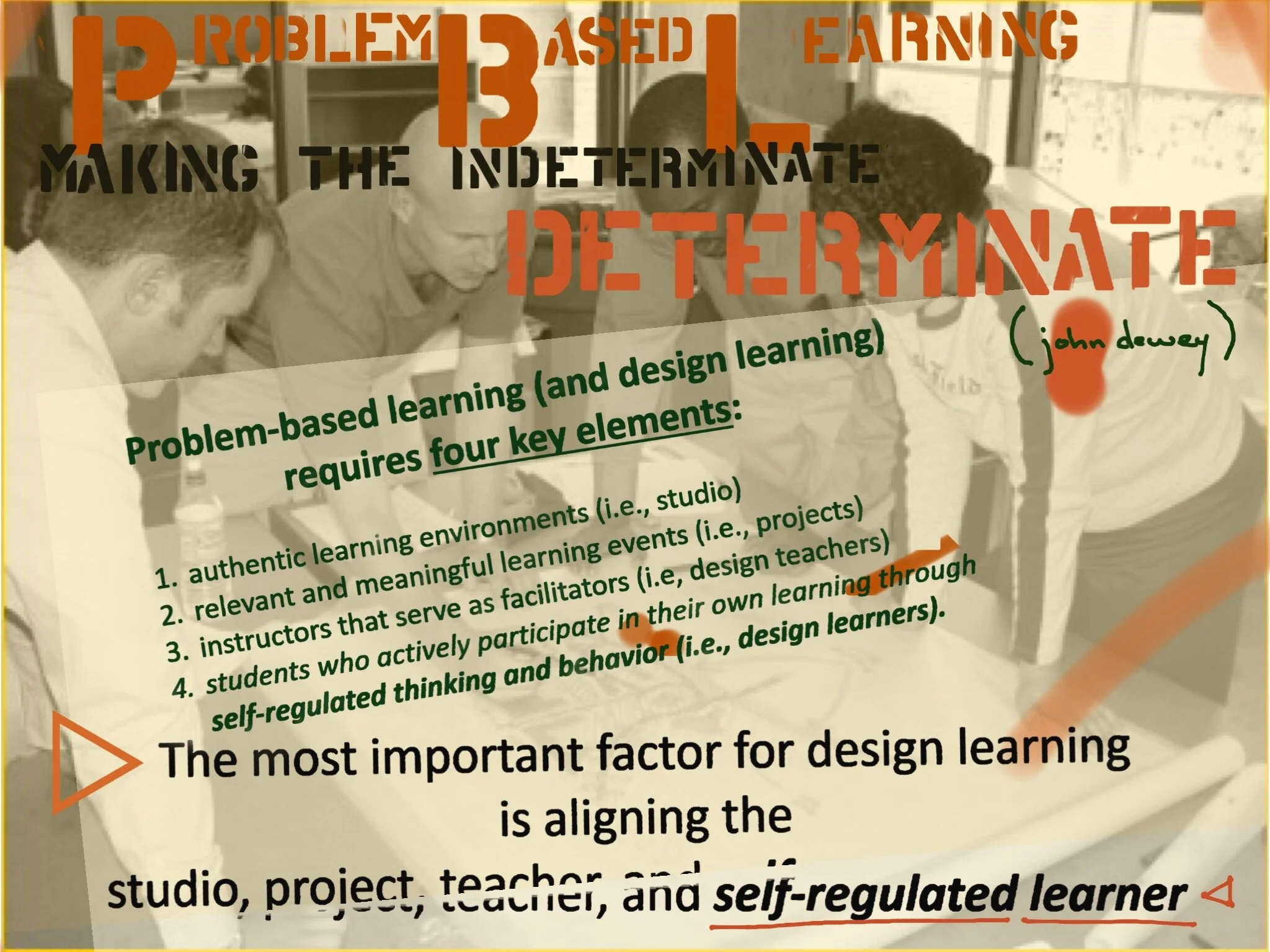design Pedagogy & Problem Solving
Design pedagogy is the theory and methods of teaching and learning design. It is characterized by a problem-based methodology that strongly resembles the processes used by professional designers. Design pedagogy facilitates design learning by emphasizing activities, processes, and environments that help learners become accustomed to the kinds of thinking and behavior practiced by professional designers.
A primary goal of design learning is helping students acquire the skills, knowledge, and expertise needed to make the ‘indeterminate determinant’ through the process of designing.
Problem Based Learning (PBL)
As a form of thinking and behavior, design learning is essentially problem-based learning within the domain of design. Problem-based learning (PBL) is a student-centered pedagogy in which students learn about a subject through the experience of solving an open-ended problem. Both problem-based learning and design learning use inquiry and experience as teaching methods. Additionally, both aim to help students develop contextualized knowledge, effective problem solving skills, increased capacity for self-regulated learning, and enhanced collaboration skills.
Problem based learning is a powerful pedagogic approach that requires student self-regulation to ensure optimal learning outcomes
Effective PBL (and design learning) depends on four key elements including (1) authentic learning environments, (2) relevant and meaningful learning events, (3) instructors that serve as facilitators, and most importantl, (4) students that actively participate in their own learning through self-regulated thinking and behavior. Of these key elements, the most important is self-regulated learning (SRL).


